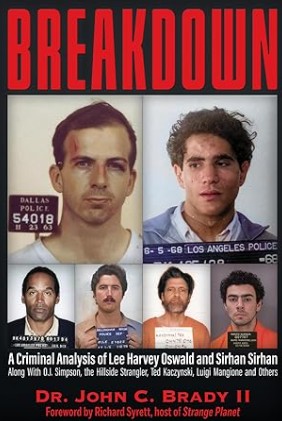Forensic Psychologist talks about the latest involving Ghislaine Maxwell
In a recent discussion between Dr. John Brady and Rich Valdes, the psychological makeup of Ghislaine Maxwell was examined in detail, alongside the unusual circumstances surrounding an interview she had with Deputy Attorney General Todd Blanche. The conversation sought to uncover what drives a figure like Maxwell, how she became ensnared in Jeffrey Epstein’s orbit, and what her state of mind may reveal about broader patterns of complicity, control, and moral disengagement.
Dr. Brady began by framing Maxwell’s behavior through the lens of personality structure and psychological defense mechanisms. He explained that individuals like Maxwell often combine traits of charm, intelligence, and social sophistication with darker tendencies toward manipulation and detachment from empathy. Her upbringing, surrounded by privilege and power, likely shaped her belief that rules applied differently to her, feeding a sense of entitlement. This mindset, when reinforced by Epstein’s wealth and influence, created an environment where exploitation became normalized and moral boundaries collapsed.
Valdes pressed Brady on whether Maxwell’s choices were conscious acts of evil or more the product of psychological dependency. Brady responded that it was not an either-or scenario. Maxwell demonstrated agency and awareness, yet she also showed signs of being psychologically conditioned by Epstein, functioning in a codependent relationship that blurred responsibility. Brady described this as a dynamic in which she sought validation through service to Epstein, while simultaneously using her proximity to him as a source of personal power. Such a relationship fosters rationalization, allowing her to suppress guilt and maintain an outward image of sophistication and respectability.
The discussion then turned to the controversial interview Maxwell gave to Todd Blanche. Brady explained the unusual nature of such a high-level legal figure engaging directly with someone like Maxwell. He suggested that Blanche’s approach might have been strategic, aiming to evaluate Maxwell’s credibility, psychological stability, and willingness to cooperate. From a psychological perspective, Maxwell’s responses revealed someone deeply invested in controlling narrative, portraying herself less as a predator and more as a victim of circumstance. Brady argued this is a classic defensive maneuver—recasting oneself in a sympathetic light while minimizing accountability.
Valdes asked whether this tendency to recast herself indicated delusion or calculated manipulation. Brady’s view was that Maxwell remains calculating, even when invoking victimhood. She possesses an acute awareness of optics and understands how to leverage ambiguity to her advantage. This does not mean she is disconnected from reality; rather, she operates with a dual track of cognition—acknowledging her past actions privately while attempting to present an altered version publicly. This duality, Brady suggested, is common among individuals involved in organized abuse and trafficking rings, where public image management becomes almost as important as the exploitation itself.
The conversation explored how Maxwell’s psychological makeup reflects broader themes about power, privilege, and accountability. Brady emphasized that Maxwell was not merely a passive participant. Her behavior fits the profile of someone who internalizes the values of a corrupt system and then actively perpetuates them. She leveraged her social skills, linguistic abilities, and international connections to recruit and groom victims, acting not out of ignorance but out of a distorted sense of loyalty, control, and status preservation.
Valdes raised the question of what lessons can be learned from the Maxwell case for both psychology and law enforcement. Brady argued that it highlights the need for greater understanding of how intelligent, outwardly respectable individuals can engage in prolonged criminality without appearing overtly pathological. He stressed the importance of recognizing how psychological manipulation, power dynamics, and rationalization processes allow figures like Maxwell to operate in plain sight. This requires not only strong legal tools but also a psychological literacy within investigative frameworks.
Toward the end of the interview, the pair reflected on the broader implications of Maxwell’s attempt to shape her narrative through her conversation with Blanche. Brady suggested it underscored the enduring struggle between accountability and evasion. Maxwell continues to resist full acknowledgment of her role, hoping that by casting herself in shades of gray, she can soften public perception. Yet the very fact that such interviews occur indicates the persistent tension between legal scrutiny and psychological defense.
In conclusion, Brady argued that Ghislaine Maxwell exemplifies how privilege, dependency, and manipulation intertwine to produce moral collapse. Her psychology cannot be reduced to victimhood nor villainy alone—it is a mixture of entitlement, calculation, and rationalized complicity. Valdes closed the conversation by noting that understanding figures like Maxwell is not only about dissecting her past but about preventing future predators from exploiting similar psychological blind spots in society.


